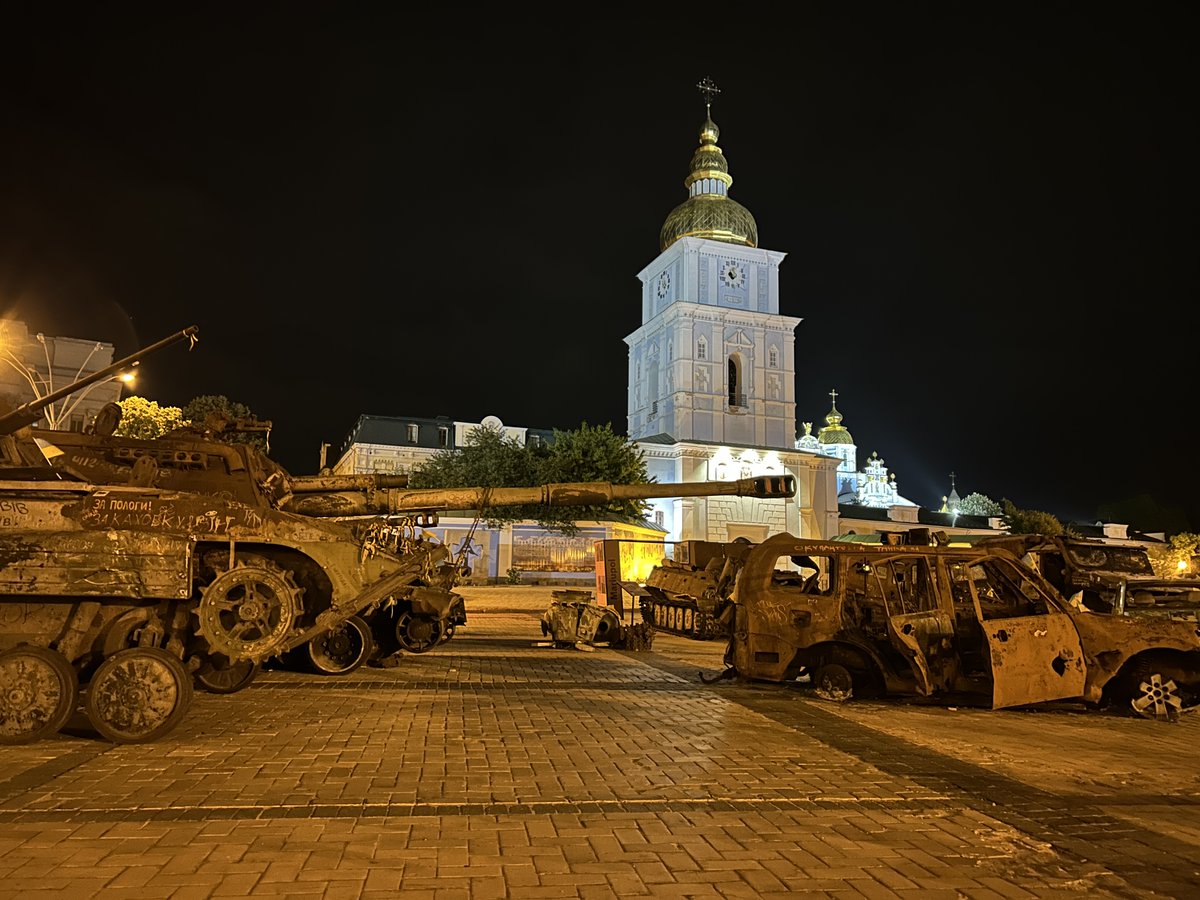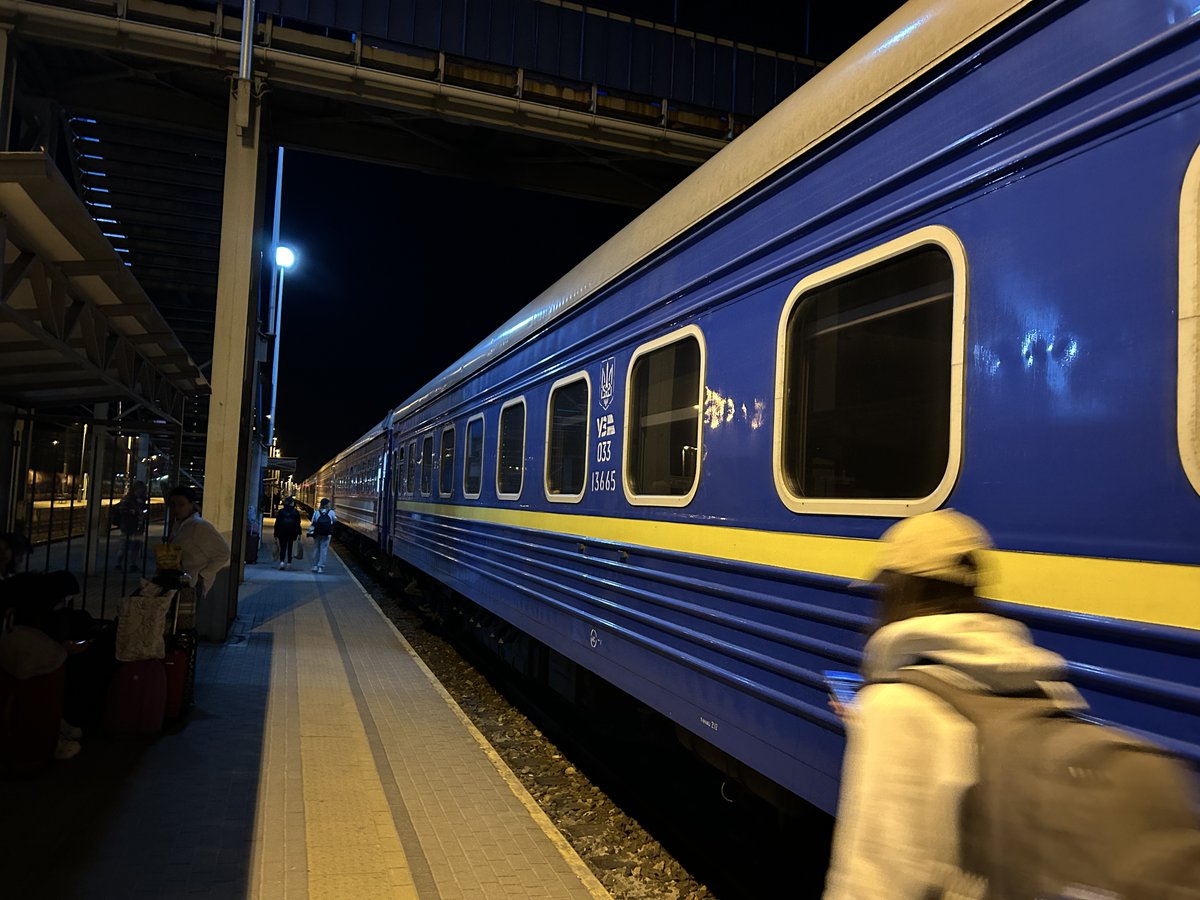Having just returned from Kyiv, I’d like to share some main takeaways from my meetings with political and military actors, people both supportive and critical of the Zelensky administration, as well as ordinary Ukrainians I met along the way. 

Most remarkable is Ukrainians’ resilience and unity in the third year of a relentless, unprovoked attack by Russia. Although there is grumbling—Ukraine is a democracy—there is broad consensus for the need to keep fighting and awareness of the dire consequences of losing the war. 

People in Kyiv take constant air raid alarms with sangfroid. They are confident in the air defenses around the capital. But one old acquaintance said she thinks a second Russian attack on Kyiv is possible—something she wouldn’t have said a year ago. 

It doesn’t take long for people to express frustration with the government and voice the suspicion that someone must be profiting from the war. But even if Zelensky is losing popularity, Ukrainians understand that this is no time for elections.
Under fire and partial occupation, Ukraine cannot hold new elections. Millions of people are displaced from their homes. There is no way to guarantee security. The main peril is that a divisive election campaign could tear apart the country from the inside. 

The Kremlin is spreading the idea that Zelensky is illegitimate—ridiculous considering Putin has just tricked his way into a fifth term. A fierce political opponent of Zelensky told me elections cannot be held until 3 months after a total ceasefire and the lifting of martial law.
Surprisingly, there is little nervousness about the prospect of a second Trump presidency. Given how disdainfully Trump treated Ukraine in 2019, I find that naive. But many Ukrainians are fed up with the Biden administration’s caution and think Trump could shake things up.
Everyone in Kyiv is talking about Andriy Yermak, Zelensky’s powerful chief of staff. At one dinner party, Yermak was ridiculed as “the real first lady” (among other things). Defenders of the presidency say Yermak is a scapegoat and the man who gets things done.
There is friction between Zelensky’s office and the State Department. US diplomats are seen as being stuck on conventional talking points (civil society, anti-corruption) when Ukraine is in an existential struggle. Not surprisingly, Yermak prefers going straight to Jake Sullivan.
In an effort to step back into the global limelight, Zelensky is placing inflated hopes on a Swiss peace conference next month. Although his administration sees it as a way for Ukraine to regain agency, the conference most likely will end in big declarations and little deeds.
The US is curbing Ukraine’s expectations ahead of NATO’s 75th anniversary summit in Washington. Ukrainians joke that NATO stands for “No Action, Talk Only.” Pragmatic Ukrainians say a bilateral security agreement with the US is the best Ukraine can hope for in Biden’s first term.
I heard grudging respect for Russia’s ability to switch to a war footing and adapt to a changing battlefield. Some expressed frustration that Ukraine’s economy had not been put on “military rails,” others that red tape was hampering Ukrainians’ amazing ability to self-organize. 

Putin killed the Russian language in Kyiv. In 20 years of traveling there, I always heard more Russian on the street than Ukrainian. On this visit, I heard very little, especially among young Ukrainians. I promise to start learning Ukrainian—you guys let me be lazy. 

Mobilization affects all Ukrainians. Everyone lives in the shadow of war when a father, son, brother, husband or friend could be called up. My best Ukrainian friend takes it fatalistically—even though he travels abroad for work and has had many chances to dodge the draft. 

Many people believe Ukraine has to muddle through to the start of next year, when things have a chance of looking up. “Everything is going to be ok,” my old Ukrainian acquaintance said. “The question is at what cost.” END 

• • •
Missing some Tweet in this thread? You can try to
force a refresh











